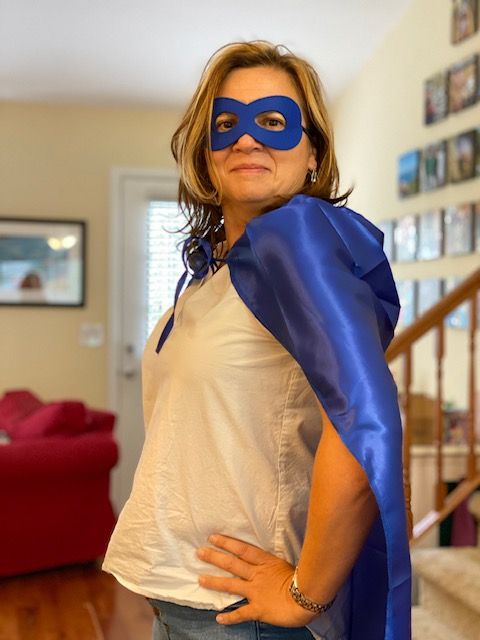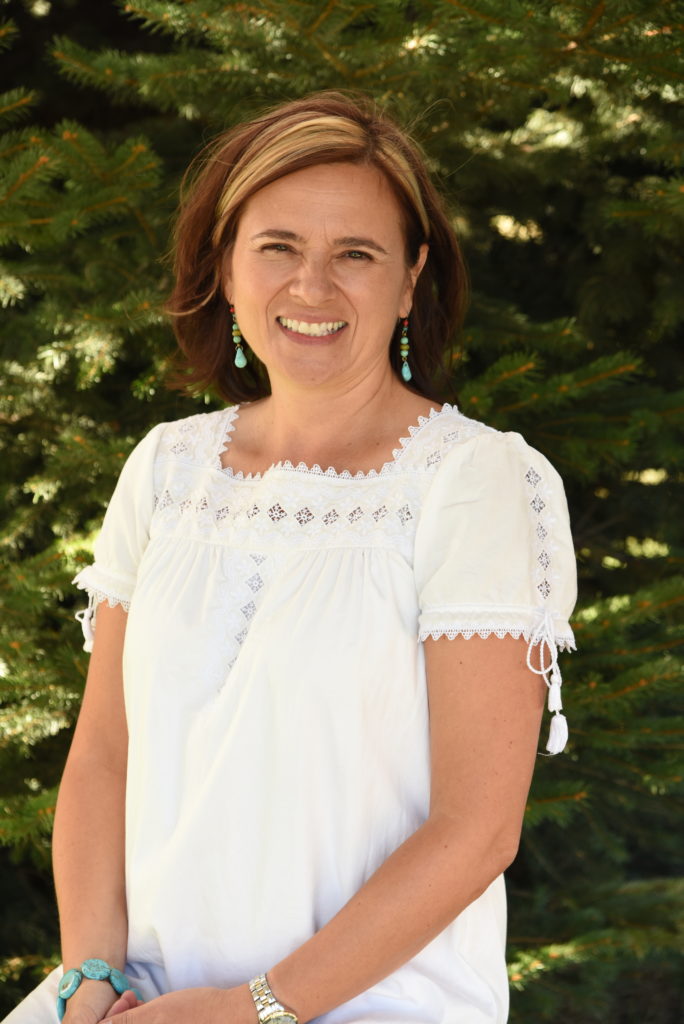Our Stories: Rebecca Laverdure
By Wynn Montgomery

Rebecca Laverdure has been a teacher for 24 years and has never seen a year like this one. Since the start of the 2020-21 school year as a second-grade teacher at Louisville Elementary School, she has experienced four job changes without changing schools. She has taught her entire class in the classroom and at home (first from her classroom and then from her home) as well as the “hybrid” model with some students at home and some in the classroom. For a while she thought she would be asked to teach a combination of grade levels, but she is happy to say that never happened.
The months since local schools first shifted to at-home learning last March have been hard on everyone and especially difficult for teachers, who—often on short notice—had to adapt their curricula to be presented virtually while mastering the associated technological challenges often with outdated equipment. Rebecca admits that she is “struggling,” but she perseveres because she loves teaching and because she knows that she is not alone. She has a strong personal support network and acknowledges that other teachers have bigger challenges than she does. Several have taken medical leave not because they contracted Covid, but because the mental and physical stress was overwhelming.
In addition to the challenges of constantly adapting her curriculum to fit changing delivery requirements, Rebecca also must conduct parent conferences and is sometimes asked to address a student’s non-academic issues (e.g. lack of winter clothing and food). As a result, 12-hour work days are far too common. The theme that the Louisville Elementary teachers chose for this year—”Teachers as Superheroes”—could not be more appropriate. The photos that accompany this article show Rebecca as most of us know her and as her “super” alter ego.
Rebecca says that she is trying to take care of herself though meditation, yoga, and daily walks. She adds that she is fortunate, as the single mother of a teenager, that her daughter Zoe is self-directed—and can cook. Her parents (BVUUF members Larry and Ellen Laverdure) also live nearby, and she has the support of an inter-generational network of friends.
Rebecca grew up in communal housing in Massachusetts. Her family was active in the local Catholic church, where Rebecca was an altar “server” until a new priest declared that he would allow only altar boys. Because of that sexist declaration, Rebecca refused to be confirmed. Her parents supported her and decided to find a spiritual home that was suitable for the entire family. That decision eventually led her parents to Unitarian Universalism, but not until Rebecca had left for college. After getting her undergraduate degree, Rebecca moved to California and earned her Masters degree in education from Stanford. She then came to Boulder with her then-husband, who had accepted a position at CU. When Zoe was born, Rebecca’s parents moved to Boulder to be near their new grandchild. They found BVUUF and introduced the Fellowship to Rebecca; the entire Laverdure clan has been active in the Fellowship ever since.
Zoe began attending BVUUF meetings with her grandmother as an infant! She grew up in BVUUF’s RE program, having done all the RE programs–Sundays, OWL since 1st grade, camp, and then camp counselor, services, and the search committee for the Faith Formation Director. She’s been taking this year off because of COVID and starting high school. Besides being an RE parent, Rebecca also has been an active member of the Fellowship. She has been a thoughtful and inspiring voice in the pulpit as a Service Associate and more recently a member of the Leadership Development Committee. She too has had to reduce her BVUUF involvement (as well as her role as a representative of the teachers union) because of her increased workload.
Rebecca has traveled extensively to observe the educational systems in a number of countries (such as Spain, India, Japan, and Finland). She has seen many innovative approaches that she wishes could be implemented locally, but change comes slowly—even without the current COVID-induced adjustments. In spite of all the challenges, Rebecca remains optimistic. She acknowledges that it is now more difficult to “create community in the classroom,” which she sees as a key to student learning, but she is confident that her students will come through this crisis with increased “initiative, perseverance, and independence.”

